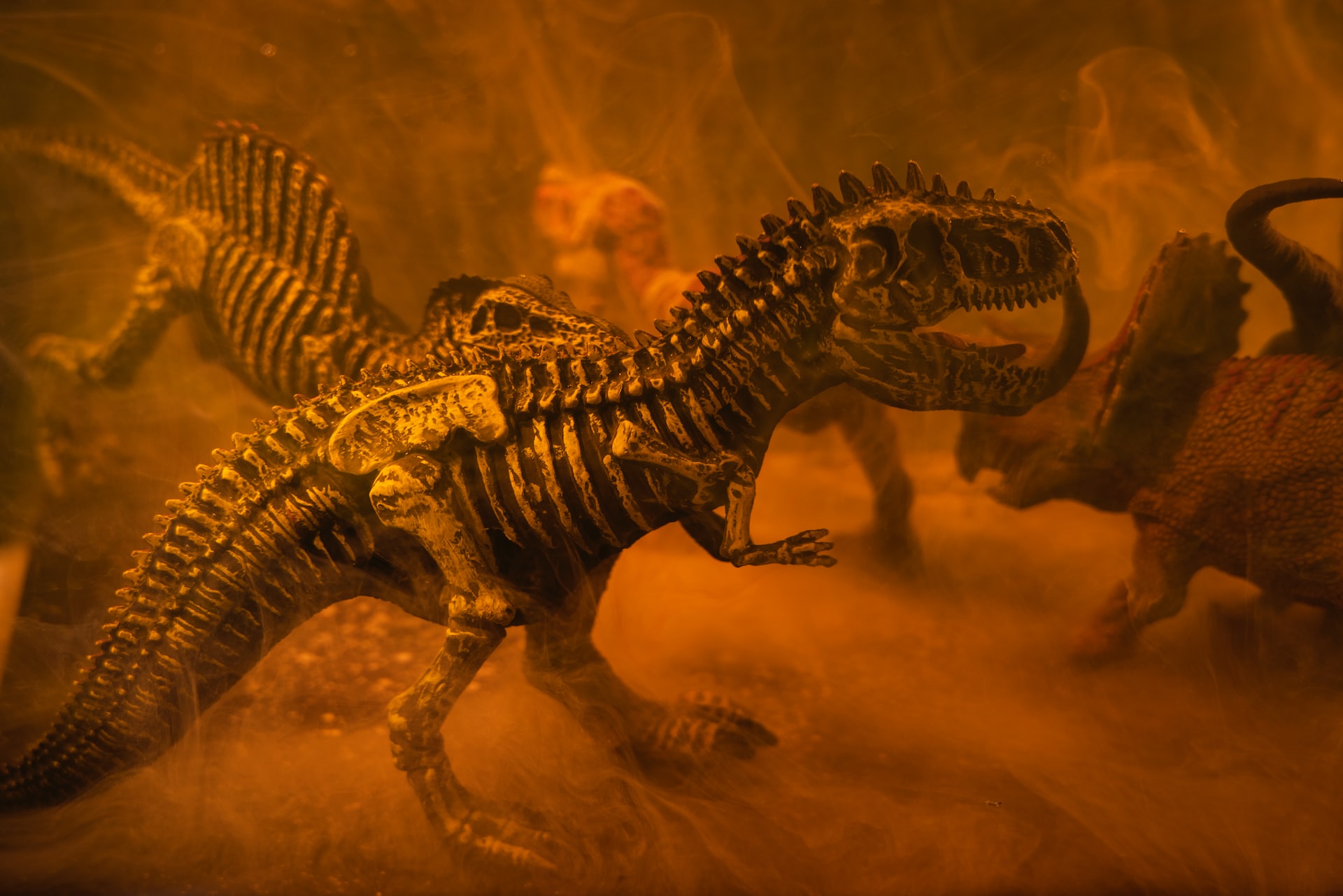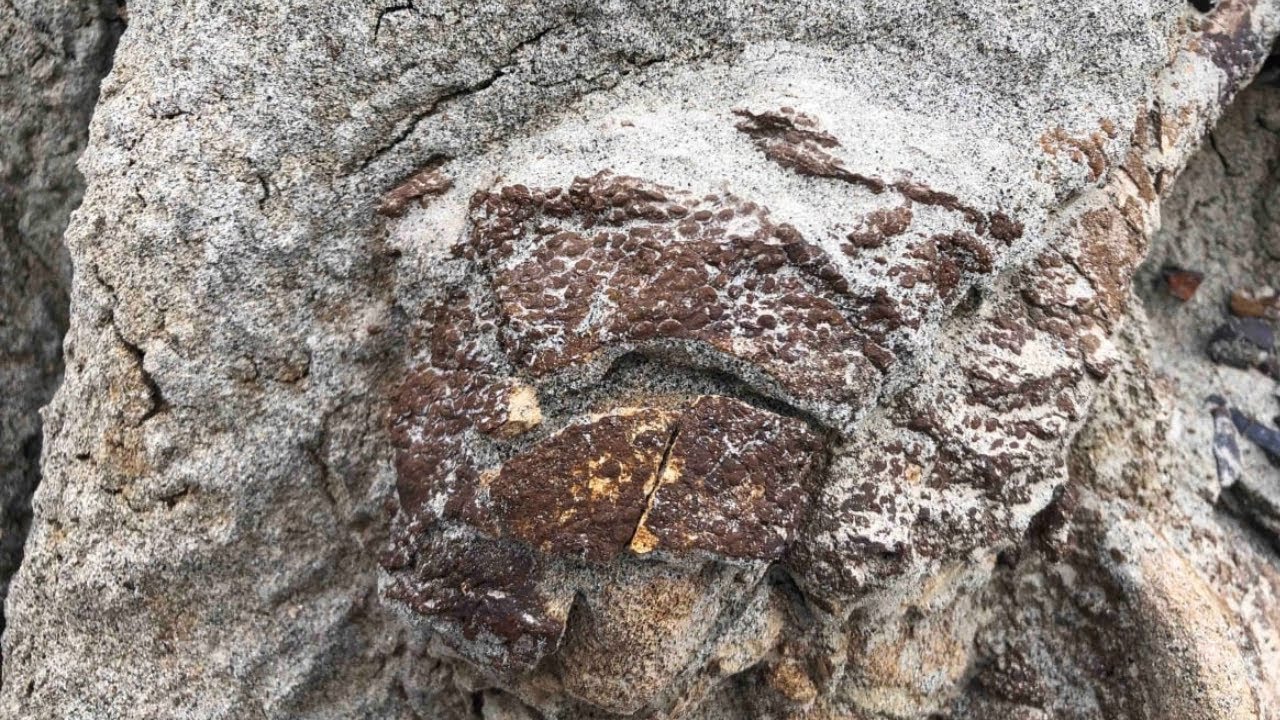A Rare Duck-Billed Dinosaur Skeleton With Basketball-Like Fossilized Skin Was Found In Canada
A rare duck-billed dinosaur skeleton with basketball-like fossilized skin was found in Canada. When paleontologists in Alberta, Canada, discovered a nearly complete skeleton of a hadrosaur (a duck-billed, herbivorous dinosaur) with preserved soft tissue, they realized they had made a once-in-a-lifetime finding.
Author:Suleman ShahReviewer:Han JuMay 31, 2023295 Shares36.8K Views

A rare duck-billed dinosaur skeleton with basketball-like fossilized skin was found in Canada. When paleontologists in Alberta, Canada, discovered a nearly complete skeleton of a hadrosaur (a duck-billed, herbivorous dinosaur) with preserved soft tissue, they realized they had made a once-in-a-lifetime finding.
The 13-foot (4-meter) long animal lived during the Cretaceous epoch when rivers crisscrossed the terrain and perished some 76 million years ago (145 to 66 million years ago).
As a result of its rich prehistoric fossil deposits, the region is today known as Dinosaur Provincial Park, a UNESCO World Heritage Site. CBC/Radio Canada, Canada's national public broadcaster, reports that between 400 and 500 dinosaur bones or heads have been discovered in the region.
A Duck-billed Dinosaur
Dinosaur Provincial Park in Alberta, Canada, is one of the world's greatest areas for dinosaur fossils. The exposed fossil of a large-bodied, herbivorous, duck-billed dinosaur is still jutting from a hillside.
The fossil's position suggests that the whole skeleton may still be inside the mound. This makes it a unique "dinosaur mummy" that will likely tell us a lot about the animal's appearance and body.
Teri Kaskie, an environmentalist and volunteer on the excavation crew, "came upon the fossils by surprise" in August of last year when she saw bones sticking out of the hillside. To finish excavating the dinosaur, Pickles and a few of his students from the university traveled to Canada this year.
This is a time-consuming operation that may need another field excursion next summer. And although the researchers have a good idea that an entire Hadrosaur skeleton is buried in the rocky matrix, they won't know for sure until they finish excavating the site.
The fossil was found in 2021 on a scouting trip led by Dr. Brian Pickles of the University of Reading. Dr. Pickles stated the finding:
“„We plan to finish the excavation over the following two field seasons. The short tail and tiny feet suggest this is a young animal. Though duck-billed dinosaurs are well-represented in the fossil record as adults, juveniles are rare. Consequently, the discovery may aid paleontologists in elucidating the developmental historyof hadrosaurs.

Fossil could be rare complete dinosaur skeleton discovered in Canada
Conclusion
It might take many months to gather and assemble the whole skeleton, but once it's done, it'll be sent to the Preparation Lab at the Royal Tyrrell Museum, where a team of experts will strive to decipher its secrets.
They will also check to see how much of the skin and bones have survived. It might take a long time (years) to have the skeleton ready for study and public exhibition.
But until a head is found, scientists won't know what kind of duck-billed dinosaur the remains belong to.

Suleman Shah
Author
Suleman Shah is a researcher and freelance writer. As a researcher, he has worked with MNS University of Agriculture, Multan (Pakistan) and Texas A & M University (USA). He regularly writes science articles and blogs for science news website immersse.com and open access publishers OA Publishing London and Scientific Times. He loves to keep himself updated on scientific developments and convert these developments into everyday language to update the readers about the developments in the scientific era. His primary research focus is Plant sciences, and he contributed to this field by publishing his research in scientific journals and presenting his work at many Conferences.
Shah graduated from the University of Agriculture Faisalabad (Pakistan) and started his professional carrier with Jaffer Agro Services and later with the Agriculture Department of the Government of Pakistan. His research interest compelled and attracted him to proceed with his carrier in Plant sciences research. So, he started his Ph.D. in Soil Science at MNS University of Agriculture Multan (Pakistan). Later, he started working as a visiting scholar with Texas A&M University (USA).
Shah’s experience with big Open Excess publishers like Springers, Frontiers, MDPI, etc., testified to his belief in Open Access as a barrier-removing mechanism between researchers and the readers of their research. Shah believes that Open Access is revolutionizing the publication process and benefitting research in all fields.

Han Ju
Reviewer
Hello! I'm Han Ju, the heart behind World Wide Journals. My life is a unique tapestry woven from the threads of news, spirituality, and science, enriched by melodies from my guitar. Raised amidst tales of the ancient and the arcane, I developed a keen eye for the stories that truly matter. Through my work, I seek to bridge the seen with the unseen, marrying the rigor of science with the depth of spirituality.
Each article at World Wide Journals is a piece of this ongoing quest, blending analysis with personal reflection. Whether exploring quantum frontiers or strumming chords under the stars, my aim is to inspire and provoke thought, inviting you into a world where every discovery is a note in the grand symphony of existence.
Welcome aboard this journey of insight and exploration, where curiosity leads and music guides.
Latest Articles
Popular Articles